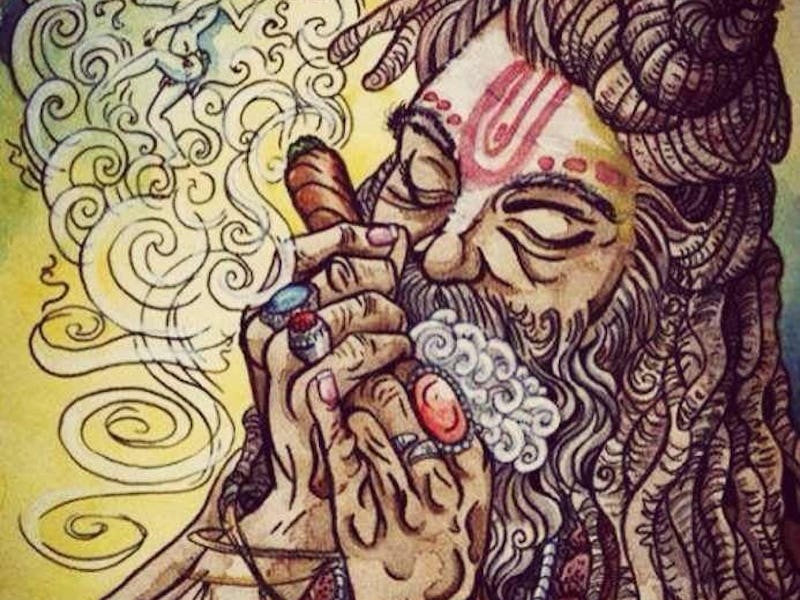It's Called 'Getting High' for This Ancient Reason
And while we're on the subject, what about getting stoned?

The 20th of April is everybody’s favorite day to smoke weed, get angry about draconian marijuana enforcement laws, and pose speculative questions about the nature of the universe. But what about the most basic question of all: Why do we call it getting high or getting stoned?
Where do those words come from? And how did they become connoted with drug use, more specifically with marijuana in particular?
Let’s begin with the etymology of the word “high” itself. According to the Online Etymology Dictionary, it has roots in a large number of ancient languages, like Old Saxon, Norse, Danish, and High German (well there’s an extra clue right there). Around about the 13th Century, its meaning was in reference to all things large, momentous, or otherwise notably above the norm. That applied to things like crimes, courts, government officials, or roadways that were well-traveled and considered to be important — the literal high road.
What's in those pipes?
That marriage of the word to things that were better or important remained over the years, and it’s not hard to see how it came, in about 1620, to be used in reference to feeling “euphoric or exhilarated from alcohol.” The first documented uses of the word “high” in reference to the effects of drugs occurred in the first half of the 20th Century, around 1930.
That’s the official story, anyway — the gradual evolution in the meaning of a word until it was appropriated by modern slang. Regular stoners, of course, have their own theories on the matter, which can be found on the forums on Marijuana.com.
Maybe.
“I read in this book that said in like the 1600s and stuff Witches used to take drugs, and think they were flying, then admit to flying on broom sticks, and thought they were actually high in the sky,” writes one user in an explanation that sounds ten times more fun than the real one. Or maybe that’s just a bunch of bullshit I read.”
“Why is a chair called a chair? Why is Marijuana called Marijuana? Why is a pipe a pipe?” posits another. It just is.
Why Do They Call It Getting Stoned?
But what about stoned? It’s high’s less euphoric and more lethargic cousin, and it’s a different beast from an etymological perspective.
A wizard named William
Whereas the present use of high marks a recent co-opting of a regularly used word into the lexicon of slang, stoned has a longer lineage of slang use behind it.
According to the book More Word Histories and Mysteries: From Aardvark to Zombie, compiled by the editors of the American Heritage Dictionaries, slang terms referring to intoxication usually come from words that originally meant “damaged or badly affected by something,” such as “trashed, smashed, crocked, blitzed,” and so on.
The word stoned is not so easily categorized, since the obvious connection is, well, a stone. According to the authors, its primary use today is for intoxication due to substances besides alcohol (read: weed) and is borrowed from older expressions like “stone drunk” or “stone cold,” which themselves were the terms that first incorporated the stone analogy into slang. And both of those expressions reference a quality of lifelessness or, in the case of “stone cold,” death, which is consistent with the image of a “stoner” lying on their couch and doing nothing.
So now you know, and you can go back to wondering if that clock on the wall really has been watching you all day.